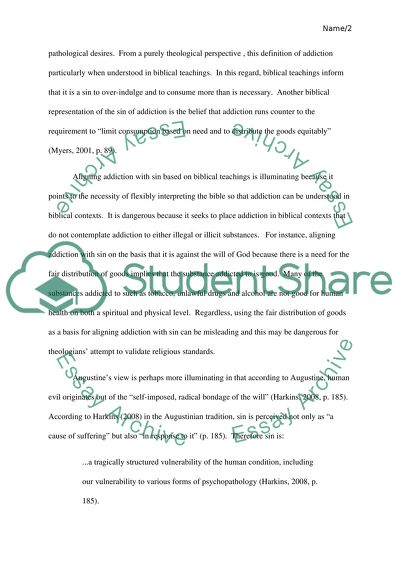Cite this document
(“Is speaking of addiction in terms of sin illuminating, dangerous, or Essay”, n.d.)
Is speaking of addiction in terms of sin illuminating, dangerous, or Essay. Retrieved from https://studentshare.org/religion-and-theology/1467809-is-speaking-of-addiction-in-terms-of-sin
Is speaking of addiction in terms of sin illuminating, dangerous, or Essay. Retrieved from https://studentshare.org/religion-and-theology/1467809-is-speaking-of-addiction-in-terms-of-sin
(Is Speaking of Addiction in Terms of Sin Illuminating, Dangerous, or Essay)
Is Speaking of Addiction in Terms of Sin Illuminating, Dangerous, or Essay. https://studentshare.org/religion-and-theology/1467809-is-speaking-of-addiction-in-terms-of-sin.
Is Speaking of Addiction in Terms of Sin Illuminating, Dangerous, or Essay. https://studentshare.org/religion-and-theology/1467809-is-speaking-of-addiction-in-terms-of-sin.
“Is Speaking of Addiction in Terms of Sin Illuminating, Dangerous, or Essay”, n.d. https://studentshare.org/religion-and-theology/1467809-is-speaking-of-addiction-in-terms-of-sin.


